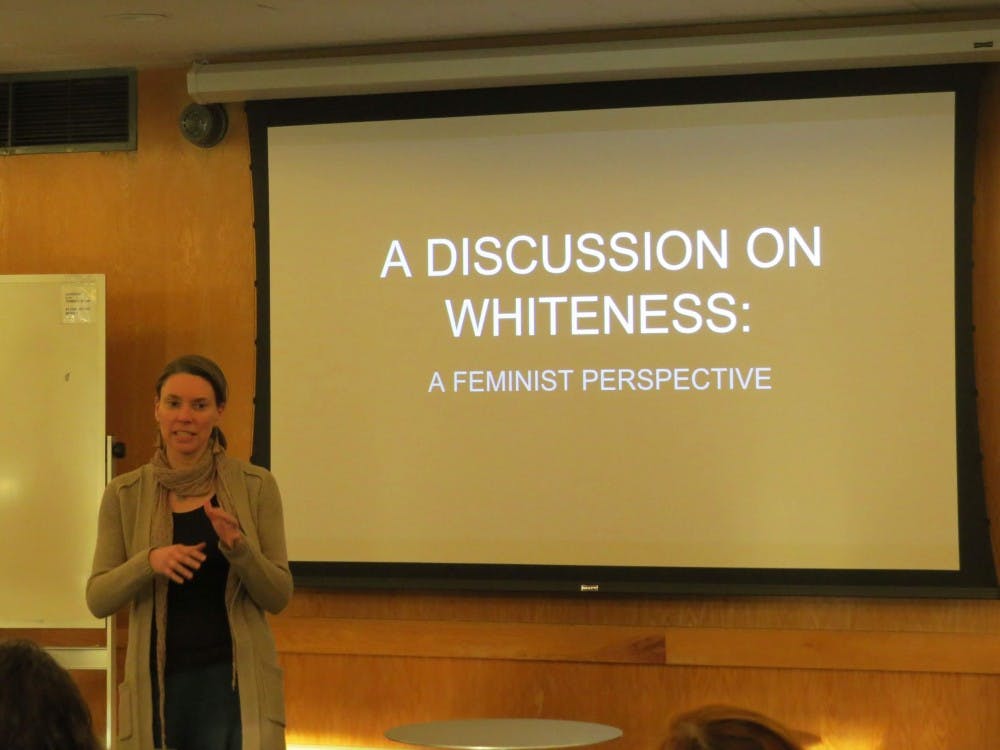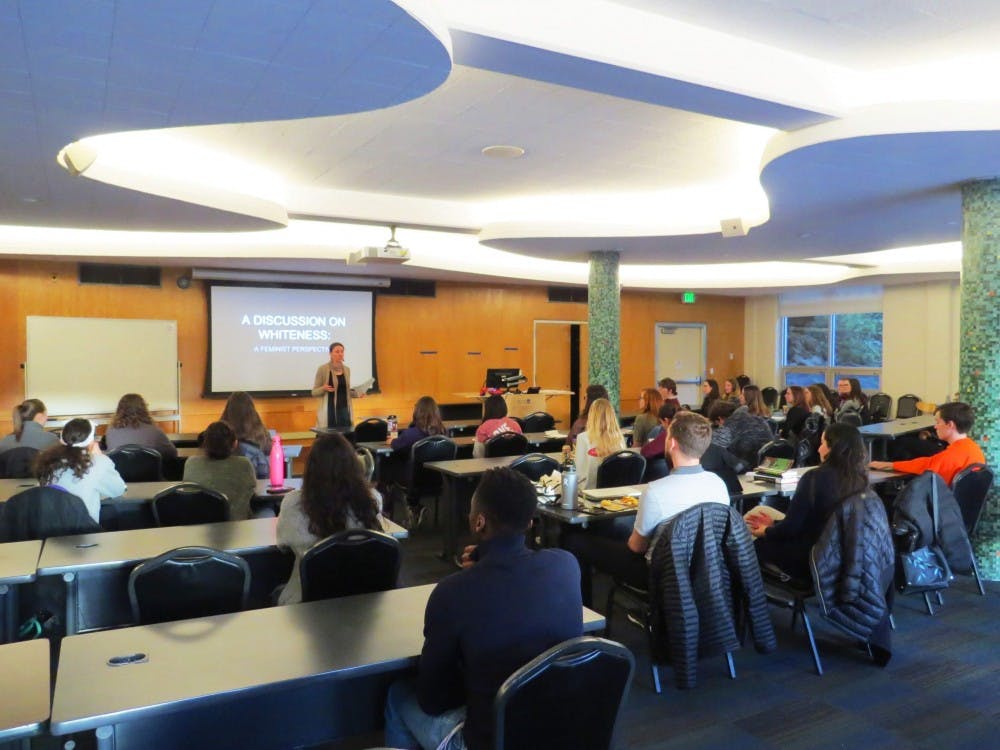
Around 30 students gathered in the Terrace Room of Bauccio Commons on Monday to dive deeper into the topic of American feminism and how it historically has catered to white women. The event was hosted by the Feminist Discussion Group (FDG), and featured history professor Christin Hancock, who spoke about feminist movements in the United States and their history with race.
“Historically white women’s complicity in maintaining racism has often been overlooked,” Hancock said. “White women’s suffrage efforts… in the late 19th century often excluded women of color, and went farther than just exclusion. They played on racist fears to try and collect support.”
In the past few decades, third wave feminist movements have begun to recognize the intersectionality between gender, race and sexual orientation in civil rights issues, Hancock said.
“Any true feminism must seek the elimination of oppression in all of its forms,” Hancock said, referencing sociologist Patricia Hill Collins. “I think that might be clearer today in some feminist organizing, nonetheless, the practice of what that means continues to be conflicted.”

After Hancock’s presentation, the group watched the first few minutes of a lecture by University of Washington Professor Robin DiAngelo, called “Deconstructing White Privilege”.
The video presents racism as a system enforced by institutions, which persists partly through a denial of political seats to oppressed groups. Afterwards, attendees broke into small groups to discuss questions regarding race and biased experiences.
The theme of the night, engaging in meaningful discussions about race, became apparent as participants were given an opportunity to share what they talked about in small groups with the whole room.
“Hopefully, this is the beginning of a discussion where we as white people become more aware,” FDG vice-president Amanda Godwin, a senior psychology student, said. “We sit with the fact that it’s uncomfortable to talk about (race), to point it out, but that is an essential and crucial step in order to move past that.”
Discussions like these are especially important on a mostly white campus like UP, where 57 percent of undergraduates identify as white, Mueller said. It’s white people’s responsibility to address their privilege, she explained, and they shouldn’t expect people of color to do it for them.

Feminism is about understanding power structures relating to gender and sexuality, and how to change them to uplift marginalized groups, Mueller said.
“These (structures) have effects on your lives, all of our lives, and usually they’re negative,” Mueller said.
Mueller and Godwin said they hope greater discussion about race at UP will rise from events like these. To fix a problem, you have to be aware of it first, Godwin said.
Sam Cushing is a reporter for The Beacon. He can be reached at cushing20@up.edu.









